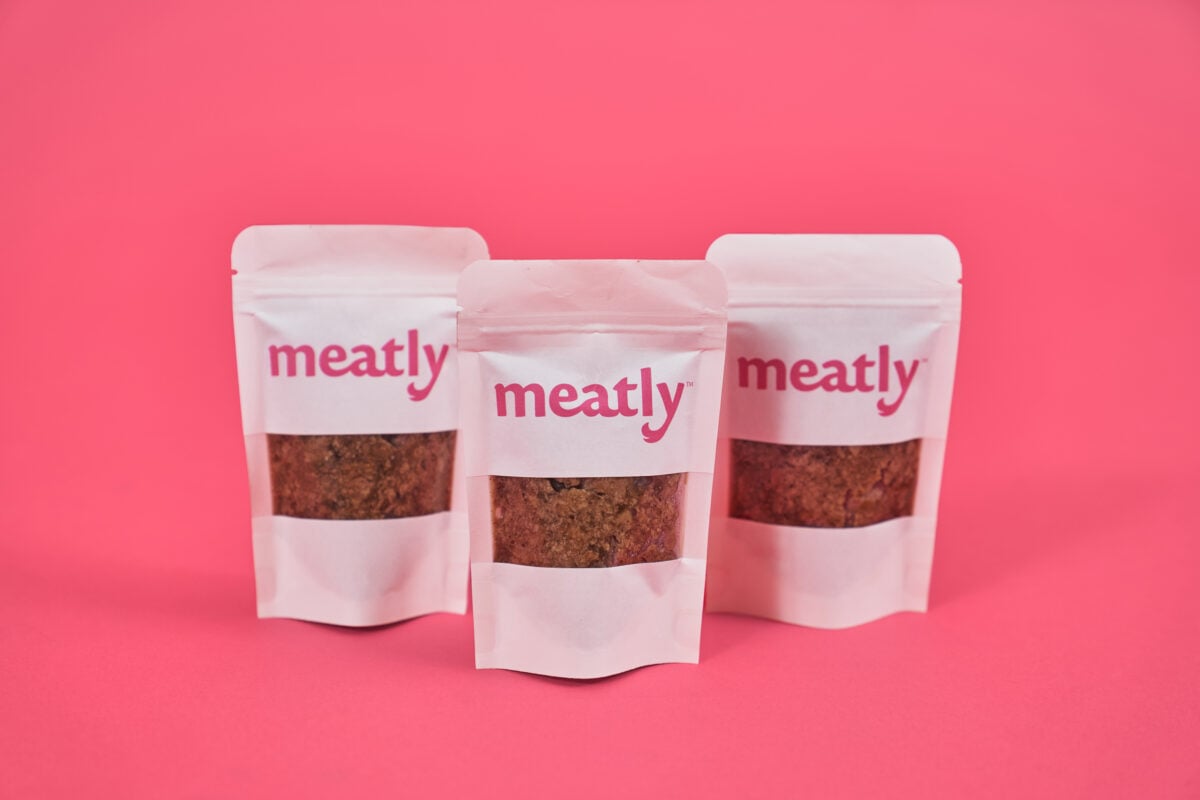The UK has become the first country ever to approve cultivated meat for use in companion animal food.
Read more: Cultured Meat Brand Aims To Spare 27 Million Animals After Raising Nearly $100M
Meatly, which produces slaughter-free chicken meat for dogs and cats, has been granted regulatory approval for its product. The company has been working with the Food Standards Agency (FSA), Department for Environment & Food Affairs (DEFRA), and the Animal and Plant Health Agency (APHA) for 18 months to gain approval. This is the first time a European country has ever granted such approval to cultivated meat. The authorities have now confirmed that Meatly can sell its product to “pet” food manufacturers.
“We’re delighted to have worked proactively alongside the UK’s regulators to showcase that Meatly chicken is safe and healthy for pets,” Meatly’s CEO and founder, Owen Ensor, said in a statement. “Pet parents are crying out for a better way to feed their cats and dogs meat – we’re so excited to meet this demand. We can now continue our mission to give consumers an easy choice – ensuring we can feed our beloved pets the real meat they need and crave, in a way that is kinder to our planet and other animals.”
Read more: Cultivated Meat Is Cleared for Sale In The US – Here’s What That Means for Consumers
What is cultivated meat?

Cultivated meat – also known as cultured, cell-based, or lab-grown meat – refers to real meat made without slaughtering animals.
To make the meat, producers extract a small amount of cells from a living animal, egg, feather, or similar, and place them in bioreactors alongside a solution containing nutrients like amino acids, sugars, and vitamins. Over time, the cells multiply and turn into muscle tissue, which can be harvested and processed into a meat product. As cultivated meat is real meat, and often requires the use of an animal and animal products in its production, it is not considered vegan. Many vegans, however, support the industry as a possible route out of traditional animal agriculture.
A growing number of cultivated meat companies are also minimizing their use of animals. To make its product, Meatly says that it takes cells from a fertilized chicken egg once, and doesn’t require the use of any other animal products in production. The brand doesn’t use fetal bovine serum (which is derived from the blood of a cow fetus) as a growth medium, for example, which many companies have traditionally relied on.
More ethical companion animal food
There is growing demand for more ethical vegan “pet” food across the UK. As well as cultivated meat, there has been a boom in vegan dog and cat food from companies such as Omni (which has also collaborated with Meatly to produce cultivated cat food) and Benevo.
A number of studies have shown that well-planned plant-based diets can be both safe and healthy for dogs and cats. Many meat-based “pet” foods tend to be made with low quality meat, and have been linked to health problems in companion animals. For those who want to don’t want their companion animals to be plant-based, cultivated meat could provide a healthier and more ethical alternative.
Read more: Is ‘Hybrid Meat’ The Key To Consumer Acceptance Of Cultivated Animal Products?






